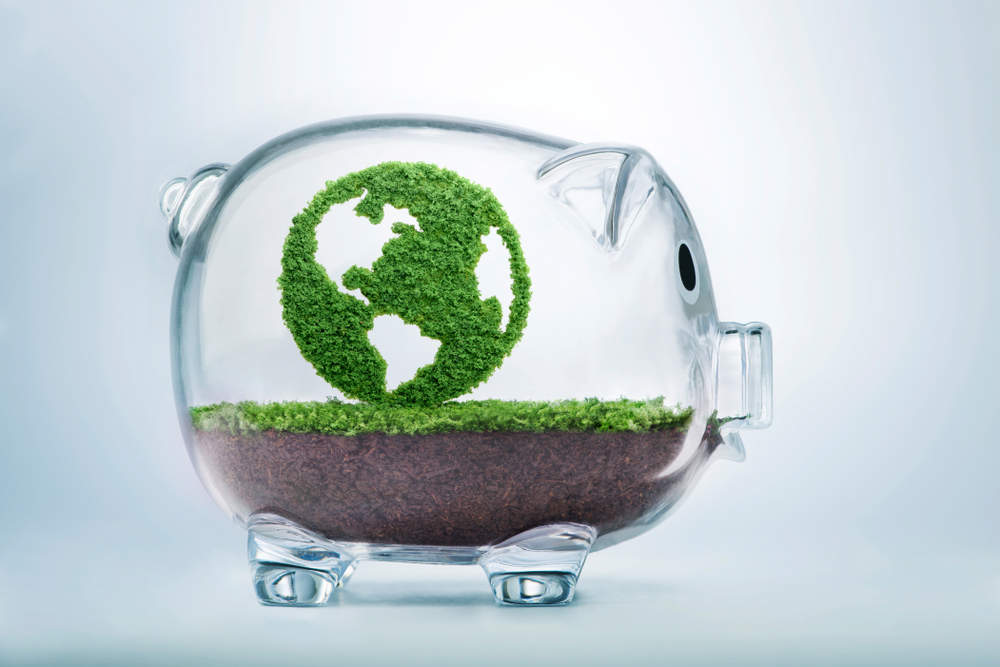
When it comes to banking, sustainability is not usually the most pressing concern on people’s radars. However, wherever consumers decide to put their money, they will be investing in the ethical choices of that bank, whether they realise it or not. Therefore, this gives consumers a choice to either invest in companies that seek to protect the environment or ones that do not. As World Environment Day approaches, Evie Rusman analyses the most ethical banks
On June 5, the United Nation’s World Environment Day is set to take place, and this year’s theme is focused on protecting biodiversity. The UN describes biodiversity as “the variety of life on Earth. It encompasses the 8 million species on the planet–from plants and animals to fungi and bacteria; the ecosystems that house them; and the genetic diversity among them”.

Access deeper industry intelligence
Experience unmatched clarity with a single platform that combines unique data, AI, and human expertise.
So, what do banks have to do with this? Unfortunately, some banks have a history in investing in environmentally damaging practices such as oil and gas, and tar sands mining. For instance, in 2012, RBS was named one of the UK’s biggest financer of the fossil fuel industry, including the Canadian tar sands, which were described as one of the world’s most environmentally damaging projects. Oil from tar sand production releases three times more emissions than conventional oil, and local indigenous populations have long reported serious health impacts.
Although, in 2018, the banking giant announced it had tightened restrictions on project finance for high-carbon energy projects. It said it would no longer directly finance coal mines, oil sands or Arctic oil projects, and unsustainable vegetation clearance projects.
Sadly, the problems do not end there – environmentally-focused Triodos Bank has estimated that £16bn, in the UK alone, could still be supporting fossil fuels, through people’s stocks and shares and ISAs.
Therefore, it is important to do some research when choosing a bank to invest in, especially if you want to reduce your carbon footprint. Luckily, there are a number of ethical banks leading the way.

US Tariffs are shifting - will you react or anticipate?
Don’t let policy changes catch you off guard. Stay proactive with real-time data and expert analysis.
By GlobalDataEthical banks to watch out for
Triodos Bank
Triodos Bank was set up in 1980 to “help create a society that protects and promotes quality of life and human dignity for all”. The bank describes itself as one of the most ethical banks in Europe and promises to only finance companies that focus on people, the environment and culture.
Speaking to the Evening Standard, Bevis Watts, CEO of Triodos Bank UK, says: “Triodos was set up to demonstrate that a bank can finance great things for people and the planet and also be profitable and successful. We want to show people the democratic power of their money and that it can be a real force for good.
“We give people a connection between the money in their bank accounts and what it’s being used for, as well as the security of knowing that their money is safe and secure with a longstanding and profitable bank. That is something that really sets us apart in banking, a track record of consistent profitability and growth, and a very different sustainable model.”
In the UK, Triodos Bank has formed partnerships with The Soil Association and Friends of the Earth, amongst others.
The Co-operative Bank
The Co-operative Bank describes itself as having an ethical approach to banking. In 2017, the bank celebrated the 25th anniversary of its Ethical Policy, which enables customers to have a say in how their money is used. The policy includes topics such as domestic violence, climate change campaigns, genetic modification, and other issues.
In its Ethical Policy, the bank states: “Customers who bank with us want to understand how their money will be used. Our customers’ money will not be put to use in a way that conflicts with our values and ethics. They also want to know that we strive to provide banking services to businesses and organisations that share our values and ethics. Support will be given to such organisations, provided they meet criteria regarding risk and return.”
The Unity Trust Bank
The Unity Trust Bank was set up in 1984 with the mission to create a better society. It provides banking and membership services to trade unions, charities, voluntary, credit union and membership organisations.
In addition, the bank specialises in having a positive social impact. In 2009, it launched a Unity in the Community initiative. This gives each member of staff five paid volunteering days per year to take part in volunteering and fundraising for charities and community organisations across the UK.
The Ecology Building Society
The Ecology Building Society promotes sustainable housing and communities in a bid to improve the environment. Money invested with them is used to fund mortgage lending on energy efficient housing, ecological renovation, derelict and dilapidated properties, small-scale and ecological enterprise and low-impact lifestyles.
The company states: “We aim to maximise the positive environmental impact of our business. While our greatest impact will be from our lending – supporting and promoting building practices that respect the environment and sustainable, low impact communities, we’re also working to reduce the direct environmental impact of our operations.”







